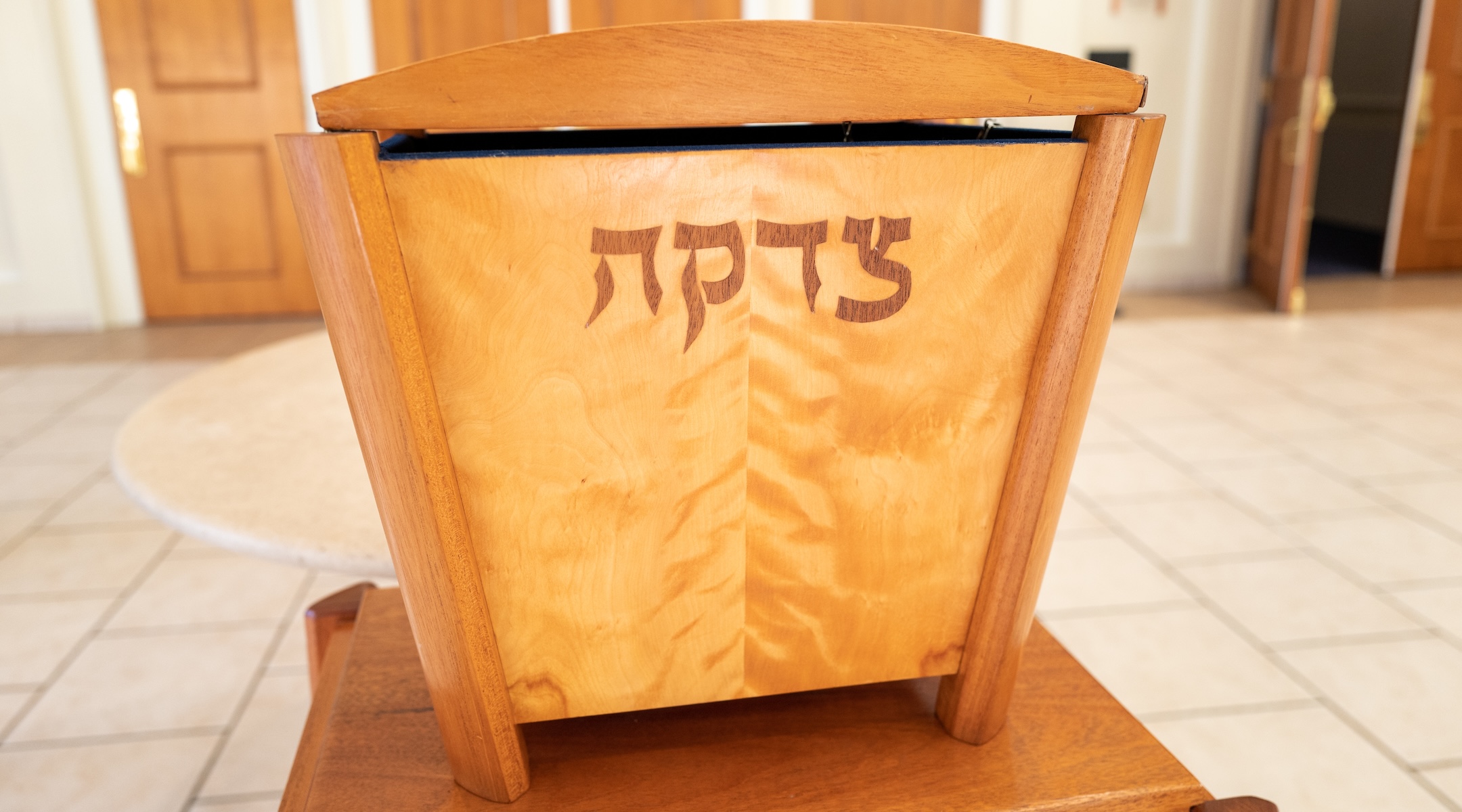(JTA) — Jews who experienced antisemitism give significantly more to charity than those who have not, according to one of the largest surveys of Jewish household giving ever conducted.
The survey of American Jewish donations in 2022 found that some three-quarters of American Jewish households gave to charity that year, donating an average of more than $10,000. One-quarter of American Jewish households donated to Israeli or Israel-focused organizations, giving an average of nearly $2,500.
The survey of more than 3,000 households, two-thirds of which were Jewish, is being published following an outpouring of American Jewish donations to Israel in the wake of Hamas’ Oct. 7 attack and the ensuing war in Gaza. The war has been accompanied by a spike in reports of antisemitic incidents in the United States.
According to an initial count by the Ruderman Family Foundation, which commissioned the study, American Jews donated more than $750 million to war-related causes in the first seven weeks after the Oct. 7 attack. But the study’s authors caution that the deluge of crisis philanthropy in recent months does not reflect American Jews’ standard giving practices.
This survey, conducted in March 2023 by Indiana University, aims to show what American Jewish philanthropy at the household level looks like in a normal year.
“The big question is the sustainability of this type of emergency support for the long term, and how it will impact those day-to-day patterns,” said Hanna Shaul Bar Nissim, a deputy director of the Ruderman Foundation and a co-author of the study. “Those who gave after Oct. 7, it’s emergency giving; it’s not your ongoing, usual pattern of giving.”
The survey found that Jewish households gave about 35% more than non-Jewish households. But the survey authors said that that difference mainly reflects the fact that American Jewish households, on average, are wealthier than non-Jewish households.
Especially striking to the survey’s authors was the impact of antisemitism on Jewish philanthropy. The survey reports that Jews who experienced antisemitism donated 10 times more, on average, than those who did not. Jews who reported being concerned about antisemitism also gave more than those who were not.
The difference also shows up in the median donation of both groups — a number that accounts for the impact of especially big or small donations on either end of the spectrum. The median donation from Jews who experienced antisemitism, $2,290, was nearly double that of Jews who did not, $1,150.
The survey did not include the sample size of Jews who experienced antisemitism. Researchers also cautioned that the data does not indicate that being the victim of antisemitism leads to more giving — only that the two phenomena are correlated. The study was not designed to explain why.
“We cannot say this is a causal relationship because of how the data is gathered, but there’s certainly a relationship between the experience of antisemitism relative to those who have not had such an experience,” said Patrick Rooney, one of the study’s co-authors and a professor emeritus at Indiana University’s Lilly Family School of Philanthropy. “The fact that it’s 10 times as much is a very profound difference,”
Part of what makes the study unique is its focus on household giving as opposed to the more commonly studied area of organized philanthropy, which can be researched through the tax returns of foundations, Jewish federations and other nonprofits, said Shaul Bar Nissim.
The survey data shows, for example, that the average Jewish donor gave more to their congregation than to any other cause. Synagogues — like churches and mosques — are not required by law to disclose their finances, which makes them harder to study as an object of philanthropy. Under U.S. tax law, contributions to houses of worship are considered charitable and tax deductible.
Shaul Bar Nissim said it was particularly surprising to learn that one in four Jewish American households donated to Israeli organizations or Israel-focused causes in the United States in 2022, which she called “a higher rate than we expected.”
Her expectations were shaped by prior studies of organizational Jewish charity rather than household giving. Those studies show that Jewish nonprofits and foundations annually dedicated an estimated 12% to 14% of their giving to Israel over the past two decades, and that organized Jewish giving to Israel has been decreasing as a share of overall Jewish giving.
In a related finding, households interested in giving to Israel continue to rely on communal institutions such as Jewish federations, even as their overall centrality to Jewish life has been decreasing.
Jay Ruderman, president of the Ruderman Family Foundation, said his organization commissioned the study in order to aid the decision-making of Jewish philanthropy professionals.
“Given how the rising threat posed by antisemitism has been a prominent concern for the American Jewish community not only during the current war in Israel but in the years immediately preceding it, we believe that our study’s findings present key insights that can inform the organized Jewish community’s activities in both the short- and long-term future,” Ruderman said.
JTA has documented Jewish history in real-time for over a century. Keep our journalism strong by joining us in supporting independent, award-winning reporting.






